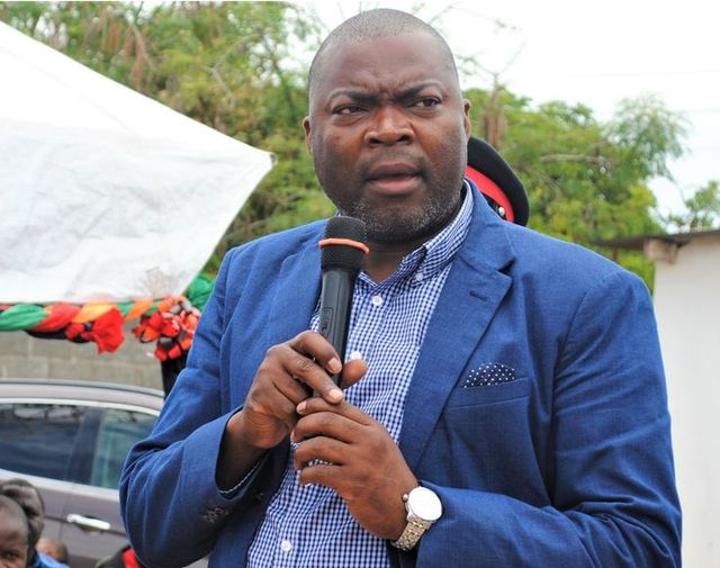Africa-Press – Zambia. THE Economic and Financial Crimes Court has thrown out an application by former Kabushi PF member of parliament Bowman Lusambo. Lusambo had asked the court to dismiss an appeal by the Anti-Corruption Commission (ACC), challenging the decision by magistrate Albert Mwaba to discharge the warrant of seizure which gave it authority to place his house in Chamba Valley under its control.
The court has ruled that it has power to determine an appeal which has been filed out of time. Judge Kenneth Mulife, on behalf of judge Pixie Yangailo and Susan Wanjelani, said magistrate Mwaba misdirected himself when he directed the ACC to file ex-parte summons for leave to appeal out of time.
This is in a matter where the Director of Public Prosecutions, on behalf of the ACC, has appealed magistrate Mwaba’s decision to discharge the warrant of seizure, arguing that it served the same purpose as the restriction notice issued by the director general of the Commission.
The DPP argued that magistrate Mwaba fell into error when he held that both a warrant of seizure and a restriction notice issued under the ACC have the same effect.
According to the Zambian laws, a warrant of seizure issued by a court and a seizure notice issued by the director general of the ACC have different dates of expiration, though they serve the same purpose of restricting the use and transaction of property under investigation.
A restriction notice issued by the director general of an investigative wing of the State expires after 90 days, and upon expiration, the owner of the property can perform transactions in the absence of a warrant of seizure
The warrant of seizure issued by a court has no specific expiry date as it remains in force until a matter is disposed of. Lusambo opposed ACC’s intention to appeal magistrate Mwaba’s decision out of time.
He raised a preliminary issue asking the court to determine whether the proceedings were criminal or civil in nature. He also wanted the court to determine whether or not it can determine the ACC’s application for its intended appeal to be heard out of time.
ACC prosecutor Edwin Mbewe, in his response to the preliminary issue, argued that the proceedings were criminal because the disputed ruling of the magistrate classified the proceedings as criminal, a position which prompted the ACC to anchor its appeal in the criminal jurisdiction pursuant to Sections 321(a) and 324 of Cap 88.
Lusambo’s lawyer Nkhula Botha argued that the proceedings are civil as the originating process, being the affidavit in support of the subject of the warrant of seizure, indicates that the matter was taken out in the civil jurisdiction of the lower court.
He submitted that the court that should hear the application to appeal out of time is the Subordinate Court and not the Economic and Financial Crimes Court because the record of appeal (ex-parte summons for leave to appeal out of time) indicates that the application has not yet been determined by the lower court.
Mbewe argued that the ACC took out the ex-parte summons for leave to appeal out of time only because it was wrongly directed to do so by magistrate Mwaba and the same summon was never heard.
He said instead of hearing the application, the court transmitted the record of appeal to the EFCC and there is no application pending before the Magistrates’ Court.
Ruling on the matter, judge Mulife said magistrate Mwaba’s ruling indicates that the lower court was exercising criminal jurisdiction when it presided over the matter.
“By the proviso to section 322 of the Criminal Procedure Code (CPC), the High Court has discretion to hear an appeal that has been filed out of time. A determination of whether the proceedings are civil or criminal, is in our view, not guided by the captions on the originating processes or any other document on the record of appeal,” judge Mulife said. “It is guided by the law pursuant to which the matter was commenced and in the present case, such law is section 58(1) of Act no.3 of 2012, being the provision pursuant to which the warrant of seizure, which triggered these proceedings, was issued. Our understanding of the provision is that it envisages criminal and civil proceedings. We are of this view because the provision is intended to facilitate investigations into a suspected offence under Part 3 of Act no. 3 of 2012, namely whether or not the properties which are subject of the warrant of seizure were derived from corrupt practices.”
He said considering that the CPC governs the conduct of criminal investigations and trial, the investigations for which the subject warrant of seizure was obtained was criminal in nature.
For More News And Analysis About Zambia Follow Africa-Press







